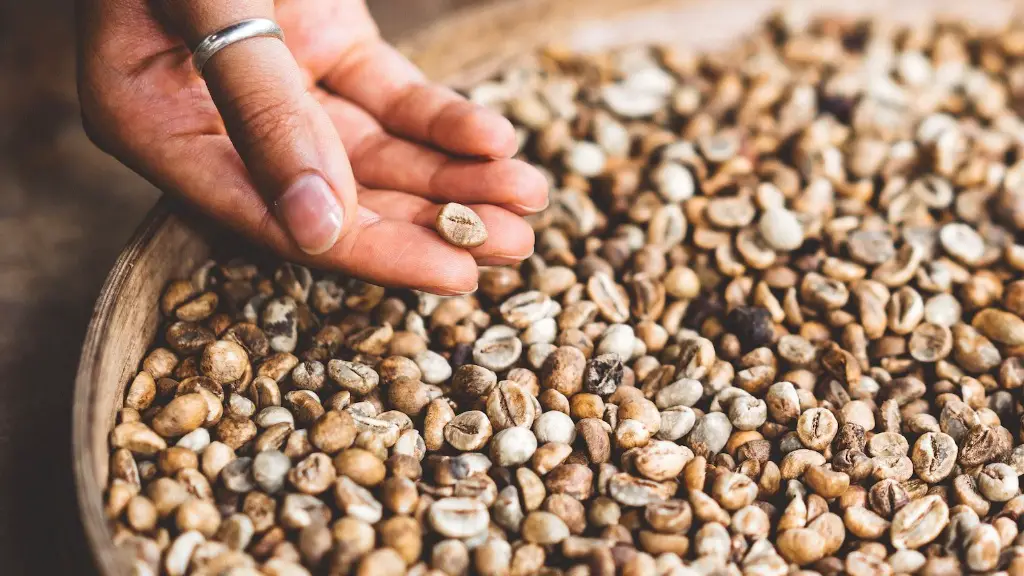Coffee is one of the world’s most beloved beverages, consumed regularly by millions of people. While coffee has been linked to a wealth of health benefits, including antioxidants and a decreased risk of certain cancers, it’s important to consider the potential risks of daily coffee consumption.
The amount of caffeine in coffee varies, but on average one cup of coffee contains between 95 and 200 mg of caffeine. Consuming more than 400 mg of caffeine a day has been linked to restlessness, insomnia, nervousness and increased heart rate. Coffee’s acidity can also lead to stomach problems for those with sensitive stomachs or acid reflux. This can cause nausea, abdominal pain, or even vomiting.
Some research suggests that drinking coffee is unhealthy, or at least not as beneficial as many people believe. A recent study from the National Institutes of Health, for example, found that consuming too much coffee could increase the risk of stroke and heart disease. Other recent studies have found that drinking coffee can lead to increases in cholesterol levels and blood pressure, as well as increases in cortisol, the stress hormone.
Experts generally agree that coffee can have health benefits, but the key is moderation. Drinking more than four cups of coffee a day can be unhealthy, and it’s important to consider how coffee is affecting your individual health. For some, coffee may cause anxiety, insomnia, or heartburn, while for others, it may provide beneficial antioxidants and an energy boost. Everyone’s body is unique and the effects of coffee will vary from person to person.
If you do choose to drink coffee, it’s better to opt for coffees that are low in sugar and calories, as well as organic coffee which is not sprayed with pesticides and other chemicals. Additionally, coffee should not replace proper nutrition and other beneficial beverages. While coffee can provide a quick boost of energy and some potential health benefits, it’s important to remember that it’s not a substitute for a healthy diet and lifestyle.
Effects of Caffeine On Humans
Caffeine affects humans in many different ways. It can boost mood and alertness, increase focus and concentration, and even improve reaction times and coordination. However, too much caffeine can lead to anxiety, jitteriness, increased heart rate and insomnia.
Caffeine is a stimulant, meaning it’s a drug that temporarily increases mental and physical performance. Caffeine acts on the central nervous system, blocking the inhibitory neurotransmitter adenosine and causing an increase in the production of other neurotransmitters like dopamine and norepinephrine. Caffeine also causes the body to release epinephrine, also known as adrenaline, which can further boost energy levels.
Caffeine has a half-life of 3-5 hours, meaning it takes 3-5 hours for the body to process half of the caffeine consumed. This means that if someone consumes 200 mg of caffeine, after 3-5 hours they should have 100 mg remaining in their system. People will usually begin to feel the effects of caffeine within an hour of consuming it.
Caffeine is a double-edged sword – it can provide a boost of energy and increased focus, but it can also be overused and abused. It’s important to keep track of how much caffeine you are consuming and to remember that it is a drug and not just another food or beverage.
Side Effects of Caffeine Overdose
Caffeine overdose is a very real possibility if someone consumes too much caffeine, especially if the caffeine is from sources other than coffee, such as energy drinks or pills. Overdosing on caffeine can lead to irritability, rapid heart rate, headaches, anxiety, and even seizures in extreme cases.
Caffeine can be habit forming, so it’s important to keep track of how much caffeine you’re consuming. If you find yourself becoming overly reliant on caffeine to get through the day, it’s time to cut back or even cut it out entirely.
Chronic caffeine consumption can also lead to dehydration, as caffeine is a diuretic that increases urination. This can lead to fatigue, headaches, and a decrease in performance. It’s important to stay hydrated and ensure that you’re replenishing the fluids your body is losing.
Lastly, caffeine can lead to a dependence, as the body gets used to regular consumption and needs higher amounts to achieve the same effects. If you find yourself in this situation, it’s best to reduce your intake gradually to avoid any negative effects.
Alternatives To Caffeine
Caffeine can provide a temporary boost of energy and cognitive performance, but if you’re trying to cut back on your caffeine intake there are other natural options to consider.
Green tea, for example, contains antioxidants and is a great source of energy without all the added sugar and calories that may be present in coffee. Matcha, a type of green tea, is rich in antioxidants, catechins, and Vitamin C, as well as caffeine, but without the crash associated with coffee. Alternatively, chai tea is another great option, as it contains spices such as cinnamon, ginger, and cardamom, which give it a creamy, spicy flavor and provide lots of antioxidants.
There are also various herbal teas that can provide a boost of energy without the need for caffeine. For example, ginseng tea contains many beneficial compounds, such as ginsenosides, which can help increase energy levels, improve concentration, and boost cognitive performance. Additionally, dandelion tea and nettle tea are also known for their energizing effects, and matcha is also a great pick-me-up for those looking for a caffeine-free energy boost.
Rethinking The ‘Coffee Is Unhealthy’ Mentality
The idea that coffee is unhealthy and should be avoided is a pervasive one, but this is not necessarily accurate. Drinking coffee in moderation can provide a range of health benefits, from antioxidants to improved cognitive performance. While it is important to be mindful of the potential risks associated with excessive caffeine consumption, coffee does not need to be completely avoided.
For those looking for the energizing effects of coffee without the potential risks, there are plenty of alternatives to choose from. Green tea, matcha, and herbal teas are all excellent caffeine-free alternatives for those looking for an energy boost.
At the end of the day, what matters is knowing your own body and how it reacts to coffee. Everyone’s body is unique and it’s important to pay attention to how you feel after drinking coffee and adjust your habits accordingly.
Factors That Increase Coffee Drinkers’ Risk
For those who choose to drink coffee, there are some key factors to consider. High-risk individuals should look to limit their intake of coffee, as they are more likely to experience negative side effects.
Individuals who have a family history of cardiovascular disease, high blood pressure, or anxiety should be sure to keep their daily coffee intake under four cups, as these issues can be exacerbated by caffeine intake. Additionally, pregnant individuals should also limit their coffee intake, as caffeine can lead to an increased risk of miscarriage.
Those taking certain medications should also be mindful of their coffee consumption, as caffeine can interact with certain medications and cause an increase in side effects. It’s also important to be aware of non-caffeinated sources of caffeine, such as energy drinks, chocolate, and certain pain relievers.
Preparing Coffee For Maximum Health Benefits
Coffee can be consumed in a variety of ways, and the way it is prepared can have a major impact on its health benefits. For example, some research suggests that consuming coffee with milk can lower its antioxidant levels, while consuming it with coconut oil can increase the body’s absorption of the antioxidants.
Not all coffee is created equal, and those looking for the maximum health benefits should opt for organic, high-quality coffee that has not been sprayed with pesticides and other chemicals. Additionally, avoid additives such as cream, sugar, and other sweeteners, as these can add unnecessary calories and lead to unwanted weight gain.
Finally, keep in mind that coffee is not a substitute for a healthy diet. While it can provide a temporary energy boost, it’s important to ensure that you’re getting the correct balance of other healthy foods, such as fruits and vegetables.
Conclusion
Coffee is one of the world’s most beloved beverages, and it can provide an array of potential health benefits, from antioxidants to an energy boost. However, it’s important to remember that too much caffeine can have negative effects on the body, and high-risk individuals should be mindful of their coffee consumption. Additionally, it’s important to consider how the coffee is prepared, as certain additives can drastically reduce the nutritional benefit of the beverage.





